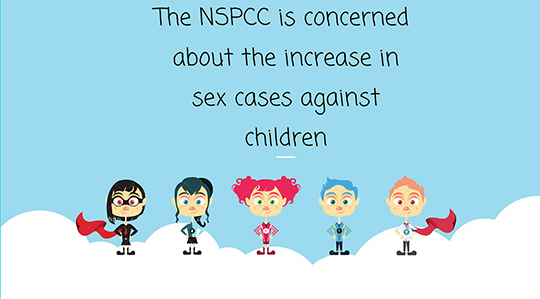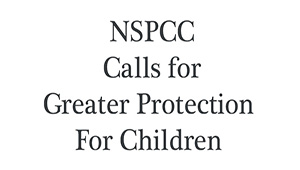Five sex crimes against a child in Northern Ireland are recorded every day.
- 2036 crimes against children in Northern Ireland were recorded in the last 12 months, a rise of over 34% since 2014/15.
- NSPCC calls for transformation of support system for children who have been abused.
Recorded sexual offences against children have reached an all-time high, data obtained by the NSPCC has revealed.

In Northern Ireland, there were 2036 recorded offences including rape, grooming and sexual assault against children in 2018/19. This equates to more than 5 sex crimes against a child every day . Across the UK, in the same period, there were 76,204 of these offences.
Children who suffered sexual abuse will often need extensive support but overstretched services are failing to keep pace with demand, and the NSPCC is calling for a radical reshaping of how this support is delivered across the country.
A total of 44 out of 45 police forces across the UK provided the NSPCC with the latest data on sexual offences against under 18 year olds.
Neil Anderson, Head of NSPCC Northern Ireland, said: “Record numbers of child sexual offences means we are facing a crisis in the help available for thousands of children.
“These children have the confidence to disclose what happened to them but in too many cases there is not enough timely, joined up and child-friendly support.
“We need a radical rethink in the way we help these young people, otherwise they could struggle for the rest of their lives with long term, deep- seated trauma.”
The charity is calling for the provision of specialised services around the country, with an emphasis on integrated and tailored support from justice, health and social care and specialist services for children who have experienced sexual abuse, offered in child-friendly spaces.

Such a partnership service is delivered in The Lighthouse in London, where all medical, advocacy, social care, police and therapeutic services can all be found under one roof and provision is jointly planned and delivered in a child-centred holistic way.
This integrated model connects timely therapy with the needs of each child, with local NHS services from University College London Hospital and the Tavistock and Portman NHS Trusts delivering in partnership with the NSPCC’s Letting the Future In (LTFI) service.
LTFI, which is available locally in the NSPCC Service Centres in Belfast, Foyle and Craigavon, provides therapeutic support to help children recover from sexual abuse. Young people aged 8 to 17-years-old who used the service showed a significant reduction in psychological and behavioural problems.
***
The NSPCC sent the 43 police forces across England and Wales an FOI asking them for the number of recorded sexual offences against children under-18s, an age breakdown, and whether they had a cyberflag between 1 April 2017 and 31 March 2019. The NSPCC formally requested the same information from police forces in Northern Ireland and Scotland. All forces provided data except for Cheshire.
Some of these figures may include non-recent child sex offences.
In 2018/19, there were 76,204 cases reported across the UK (65,172 in England; 3,671 in Wales; 5,325 in Scotland; and 2,036 in Northern Ireland).
In 2018/19, there were 8,656 recorded child sexual offences flagged as involving an online element – an increase of 18 per cent from the previous year (7,362).
In 2014/15 there were 46,738 recorded child sexual offences, a 63% increase in the past four years from 2018/19. In Northern Ireland there were 1516 recorded child sexual offences in 2014/15
Higher recorded sex offences do not necessarily reflect high prevalence of sex offence crimes, but could be explained by better recording, greater awareness of what abuse is, and survivors feeling more confident in coming forward.
Not all police forces provided age breakdowns. Some provided ages of victims, other provided broad age ranges.
There were 8,575 offences committed against 14-year-olds, making it the most common age group to report offences.
The NSPCC’s Letting the Future In (LTFI) is a therapeutic service that helps children who have been sexually abused. Almost three-quarters (73%) of children aged 8 and over who completed 6 months of the LFTI service had severe emotional difficulties at the start. After 6 months, this dropped to less than half (46%).
Data provided to the NSPCC via Freedom of Information requests in 2017 revealed the average waiting time for children to access CAMHS varied from two days in some areas to more than five and a half months in others.
For children who received support from the charity’s Letting the Future In service, which helps children who have been sexually abused, there was a significant reduction in the number of 8 to 17-year-olds with high levels of psychological and behavioural problems.
The Lighthouse is the first of its kind multi-agency service for children and young people who have experienced any form of sexual abuse, including exploitation. It offers a child-centred approach, providing guidance and support to help children and young people recover.























